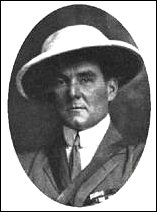What a difference a day makes. My morning read of Crookedtimber put me on track to a good article by Peter Griffiths on his work as a consulting economist in Sierra Leone and the counterintuitive workings of the World Bank. But my penchant for methodology lead me to this portion of his essay:
But I was not interviewing just for information. I was trying to get people into the state of mind that they would read my final report when I wrote it, and read it appreciatively. I was trying to show them that I was highly intelligent and that I understood what was really going on in the country. I did this by keeping my mouth shut, listening carefully and respectfully to what they said, and writing it down.
At the same time I was collecting reports and statistics. My experience of other countries was that there should be dozens of highly relevant reports, but I could only find a handful here. The statistics were appalling. For example, there were two statistical studies on food production. They disagreed by 80% on the total area planted to rice, and by 60% on the yield per hectare even though they used the identical methodology. There were no reliable figures at all on most of the economy.
I had to resort to detective work. Making sense of the statistical and other information was rather like doing a crossword puzzle. No bit of information had any credibility until there were several cross confirmations. Even then, the credibility grew as the cross confirmations were themselves confirmed by down confirmations. Some of the key information turned out to be things like seeing Japanese rice on sale in a village market, and asking a stevedore how much rice had been unloaded from a ship.
By the end of the first month I felt I was the only person who had a broad picture of the food situation in the country, though there were still lots of gaps and loose ends. I had talked to people from the Minister down. I had talked to people who were experts in different parts of the market. I had any statistics that were available. Everything was starting to come into a coherent model.
Congratulations Peter. You've just made the leap into primary data gathering. Now if only other economists could follow suit. Economic anthropologists have all sorts of horror stories about meeting consultants and econ-trained officials who make short trips to the "country" to take a look around, prefering to hire a bunch of assistants to administer some surveys while they talk to officals back in the capital. To his credit Griffith sounds like an economist who has reflected on the real world application of his profession and, in the above passage, the basics of fieldwork in developing nations.
Subscribe to:
Post Comments (Atom)

No comments:
Post a Comment